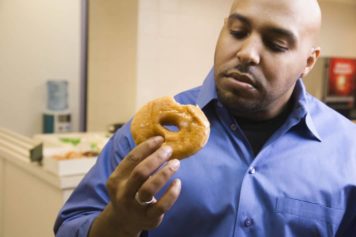
A new report examining the link between sugary beverages and health issues found that studies funded by the beverage industry were less likely to attribute the development of diseases like obesity and type 2 diabetes to the consumption of sugar-sweetened drinks.
According to The New York Times, the study was prompted by legal proceedings between the soda industry and the city of San Francisco. The industry filed a suit against the city last year after ads for sugary beverages were required to have a warning label alerting consumers to the potential health risks of the drinks.
The soda industry argued that the labels were misleading and infringed upon their rights of free speech, the news site reported. That’s when San Francisco hired Dr. Dean Schillinger of UCSF, the author of the new study, to research the link between sugar-sweetened beverages and health problems.
What Schillinger and his team of researchers found was quite astonishing. Yes, they uncovered a clear link between sugary drinks and metabolic diseases, but they also found that 26 of the health studies they examined in the process reported no connection between soft drinks and poor health. All of the research that found no link between the two were funded by the beverage industry.
TIME reports that out of the 60 studies Schillinger and his colleagues pored over, only 34 of them noted a connection between soft drinks, diabetes and obesity. Only one study backed by the beverage industry reported the connection.
“If you look at just the independent studies, it becomes exceedingly clear that these drinks are associated with diabetes and obesity,” Schillinger said. “Yet there are pockets of society that believe that they don’t cause these diseases because of the controversy the [beverage] industry has created.”
“This is not an opinion perspective,” he added. “Any high school student could do this study. You count up the studies and see who funded them. That’s research. That’s fact.”
The American Beverage Association, the trade organization that represents Coca Cola, Pepsi Cola and others, has since pushed back against the study’s findings. Per The New York Times, the association insisted that its industry-funded studies simply help to inform consumers and regulatory agencies.
“We have a right — and a responsibility — to engage in scientific research,” the group said. “The research we fund adheres to the highest standards of integrity for scientific inquiry based on recognized standards by prominent research institutions. It contributes to the body of scientific knowledge, meets the needs of regulatory agencies and enables consumers to make informed decisions.”
The association went on to take a jab at Schillinger’s research, calling it biased because the UCSF scholar was ultimately being paid by the city of San Francisco as part of the lawsuit.
“It’s ironic that he would write about bias in research when he himself is clearly not an impartial researcher,” the ABA wrote. “This paper is the latest in a trend of pro-tax forces writing speculative opinion papers to influence voters a week before a vote on several ballot initiatives to tax beverages.”

